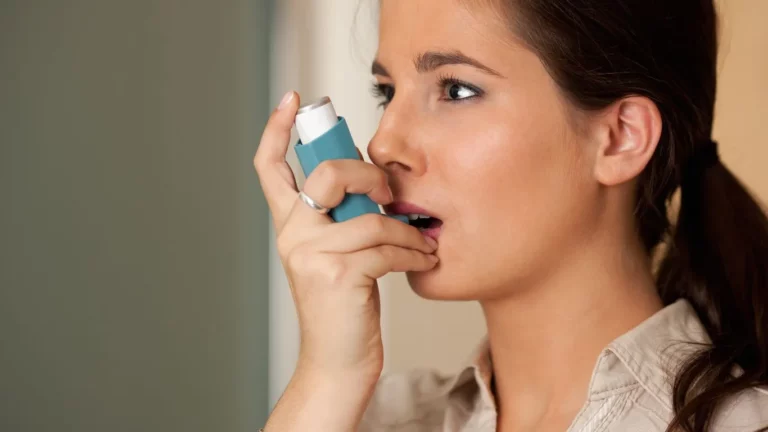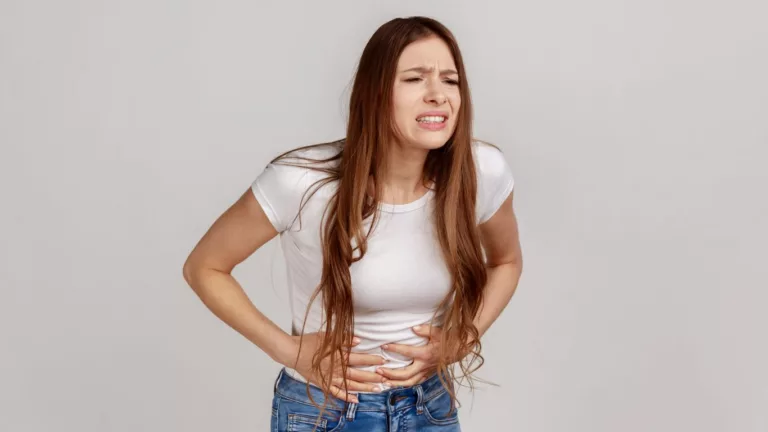How Long Does GERD Take to Heal? Real Recovery Timeline Explained
If you’re wondering how long does GERD take to heal, you’re not alone. As someone who’s worked closely with patients in a Gastroenterology clinic, I’ve seen firsthand how frustrating and confusing this journey can be. From folks dealing with daily heartburn to those who didn’t even realize their sore throat or persistent cough was related to acid reflux — GERD (Gastroesophageal Reflux Disease) really does show up in sneaky ways. Let’s talk real, no fluff, no jargon overload — just helpful insight, a bit of my experience, and what you actually need to know about healing from GERD.
What Exactly Is GERD, and Why Does It Take So Long to Heal?

GERD is basically what happens when acid from your stomach flows back into your esophagus on the regular. Think of it like a plumbing issue where your stomach valve (the lower esophageal sphincter) just isn’t closing properly. Instead of acid staying in your stomach where it belongs, it starts irritating your esophagus. Now, this lining isn’t built for acid — so that’s where the burning, discomfort, and damage start to kick in.
Now, why does it take time to heal? The esophagus doesn’t bounce back overnight. It needs time — and more importantly, the right conditions — to repair itself. That’s the part that trips most people up. They think, “I’ve been on meds for two weeks, why am I still getting symptoms?” And trust me, I’ve had this conversation with so many patients. Healing GERD is less about quick fixes and more about consistency, patience, and treating the root causes.
Let’s Talk About the Healing Timeline
Here’s the thing — healing from GERD isn’t one-size-fits-all. Based on what I’ve seen in clinic and what the research backs up, there are a few different healing stages depending on the severity:
- Mild GERD: Might start feeling better within 2-4 weeks with lifestyle changes and acid suppressing medications (like PPIs or H2 blockers).
- Moderate GERD: Typically needs 6-8 weeks for symptom relief, but full healing can take longer — especially if there’s esophagitis involved.
- Severe GERD or complications (like Barrett’s Esophagus): You’re looking at 3-6 months or more of dedicated treatment and follow-up.
One patient I remember — let’s call him Mark — came in with burning chest pain that had been going on for months. He’d tried every over-the-counter antacid under the sun. But when we got serious about it — switched his diet, got him on a PPI, worked on weight loss — he started seeing real changes by the third month. Not instant, but steady. And most importantly, sustainable.
Why It’s Not Just About Medication
This one’s big. Meds can be amazing, especially when symptoms are raging. But here’s the truth bomb I used to tell my patients all the time — you can’t out-medicate bad habits. If someone’s taking a PPI in the morning but chasing it with spicy tacos and a late-night glass of wine, the acid’s still gonna win.
Healing GERD usually involves a combination of:
- Medication: Proton pump inhibitors (PPIs), H2 blockers, and antacids as short-term relief tools.
- Diet changes: Cutting out trigger foods like caffeine, chocolate, tomatoes, alcohol, citrus, fried foods.
- Lifestyle adjustments: Elevating the head of the bed, eating smaller meals, avoiding eating 3 hours before bed, quitting smoking.
- Stress management: Yes, stress totally affects your gut. Even deep breathing or a quick walk can help.
How Long Does GERD Take to Heal If Left Untreated?

This is the scary part — and something I’ve had to gently explain to a few stubborn patients over the years. Untreated GERD doesn’t just stay the same. It gets worse. The esophageal lining keeps getting irritated, which can lead to complications like esophagitis (inflammation), strictures (narrowing), or even Barrett’s Esophagus, which is a precancerous condition.
I had one elderly patient who brushed off his reflux for years — just popped Tums when it got bad. By the time he came in, he had trouble swallowing and had lost weight because eating became so uncomfortable. An endoscopy showed significant esophageal damage. It’s not about scaring people, but this stuff is real. GERD is manageable, but only if it’s taken seriously.
Factors That Influence GERD Healing Time
There’s no magical healing clock, unfortunately. But some factors I’ve noticed that really impact recovery time include:
- How long you’ve had symptoms: Chronic GERD tends to take longer to reverse.
- Whether esophagitis or Barrett’s is present: More damage = longer healing.
- Consistency with treatment: Skipping meds, staying on trigger foods? Yeah, that delays healing.
- Weight: Carrying extra weight (especially around the abdomen) puts pressure on the stomach and worsens reflux.
- Age: Older patients tend to heal a bit slower, especially if there are other health conditions.
Understanding What “Healing” GERD Actually Means

One thing I try to explain — and honestly, this helped a lot of patients — is that “healing” GERD doesn’t always mean your symptoms completely vanish forever. For some, it’s about managing it to the point where symptoms are rare and mild. For others, it means staying on a maintenance dose of medication to prevent flare-ups. And that’s totally okay.
In clinic, we looked at three main goals:
- Stop the damage to the esophagus
- Relieve the symptoms (heartburn, regurgitation, chest pain, etc.)
- Prevent recurrence or complications
Healing is more of a journey than a destination. You’ll know you’re on the right track when the burning eases, your throat stops feeling raw, and you’re not reaching for antacids every other day. But it takes listening to your body, sticking to your treatment plan, and sometimes, tweaking things along the way.
How Long Does GERD Take to Heal with Lifestyle Changes Alone?

Okay, let’s be real — a lot of folks want to avoid medications if they can. Totally understandable. And believe it or not, I’ve seen plenty of patients who made serious progress with just lifestyle changes. But here’s the deal: you’ve gotta go all in. Like, no half-hearted “I’m eating better” while still downing soda every afternoon.
So, how long does GERD take to heal if you’re focusing just on natural methods? From my clinic experience, people who commit 100% to lifestyle changes usually start seeing relief within 4 to 8 weeks — sometimes sooner. But long-term healing? That often takes a few months of consistent effort.
Here are some of the habits that made the biggest difference for my patients:
- Meal timing: Waiting at least 3 hours after eating before lying down — this one’s huge.
- Weight loss: Even dropping 5-10% of body weight can reduce reflux dramatically.
- Cutting trigger foods: Think greasy stuff, coffee, peppermint, chocolate — yes, I know that last one hurts. I used to keep a little “GERD Food Diary” handout for patients to track what was making them flare up.
- Smaller meals: Huge portions = more pressure on the stomach = more reflux.
- Elevating the head of the bed: Gravity is your best friend when you’re sleeping.
One patient I worked with — Sarah, in her late 30s — was super motivated to avoid meds. She completely overhauled her meals, switched from late-night snacking to early dinners, and took up yoga for stress. Her reflux improved drastically in about six weeks, and by the three-month mark, she was symptom-free. So yes — it’s possible. But it takes work.
Common Mistakes That Slow Down GERD Healing

I’ll be honest — some people really want to get better but unknowingly sabotage their own healing. And it’s not their fault — there’s so much conflicting info out there. So here are some super common mistakes I’ve seen that drag out the healing timeline:
1. Relying Too Heavily on Antacids
Antacids are great in a pinch, but they’re not a long-term fix. I had a patient who kept popping them daily like candy and wondered why the burning kept coming back. They don’t heal damage — they just put a temporary band-aid on it.
2. Skipping Doses or Stopping Meds Too Soon
This one’s huge. If your doc puts you on a PPI for 8 weeks, don’t stop at week 3 just because you “feel better.” That’s when the real healing is happening behind the scenes. I’ve seen symptoms rebound hard when meds are stopped too early.
3. Underestimating Stress
People roll their eyes at this sometimes, but gut issues and stress are seriously connected. Stress ramps up acid production and messes with digestion. I always encouraged patients to explore what helped them unwind — breathing exercises, journaling, walking, even art. Whatever works, use it.
4. Eating “Healthy” But Acidic Foods
Tomatoes, citrus, onions — all great for general health but can be brutal on a healing esophagus. It’s all about knowing your triggers. What works for one GERD patient might be awful for another.
Does Everyone Heal from GERD?

This is the question nobody wants to ask out loud — but I hear it all the time in quieter, more anxious tones. “Camellia, will this ever go away for good?” And the truth is, yes, many people do heal and go on to live symptom-free. But others may need to manage it long-term, especially if there are complicating factors like a hiatal hernia, obesity, or chronic inflammation.
But healing doesn’t always mean a permanent cure — it might mean control. A place where symptoms are so rare and mild, they barely register. I’ve seen patients taper off meds after a few months and just stay mindful of their habits. Others stayed on a low-dose maintenance plan and felt great.
In one case, I remember an older gentleman who couldn’t give up his morning coffee but was willing to shift his whole schedule around it. He started eating smaller breakfasts, added a buffer meal before coffee, and took his meds religiously. It wasn’t perfect, but he felt better — and more in control — than he had in years.
How to Know If Your GERD Is Healing
Sometimes the signs are obvious: no more burning, no more acid creeping up your throat at night. But sometimes, it’s more subtle:
- You’re sleeping better without having to prop yourself up with pillows.
- You can go out to eat without stressing over what’s on the menu.
- You don’t need Tums in your purse or glove compartment “just in case.”
- Your voice isn’t hoarse in the morning. Your throat isn’t scratchy. Breathing feels easier.
Healing isn’t always dramatic. It’s the little wins that add up. I used to encourage patients to keep a symptom tracker or journal — not to obsess, but to notice trends. Sometimes you’re getting better and don’t even realize it until you look back.
Final Thought (Not a Conclusion!)
If there’s one thing I’ve learned from working in GI, it’s that GERD is deeply personal. The timeline for healing? It’s gonna be different for everyone. But with the right info, support, and some trial and error, most people get better — a lot better. Don’t rush it. Don’t get discouraged. Just keep listening to your body and making those small changes that build up over time. You’ve got this.
How Long Does GERD Take to Heal After Starting Treatment?

So, let’s say you’re finally on board with treatment — maybe your GI prescribed a proton pump inhibitor, you’ve cut down on your late-night snacking, and you’re sipping herbal tea instead of your usual double espresso. You’re doing the thing. Now the big question is: how long does GERD take to heal after all that?
From what I’ve seen, most people start noticing symptom relief within the first week or two of treatment. That’s usually the acid calming down. But actual healing of the esophageal lining — that takes a little longer. Based on guidelines and what I’ve observed in real-world care, healing often takes anywhere from 4 to 12 weeks.
Here’s a rough breakdown:
- Week 1–2: Meds kick in, acid levels start to drop, less heartburn and regurgitation.
- Week 3–4: Esophagus begins healing if the environment is stable (no food triggers, no smoking/alcohol, etc.).
- Week 5–8: Deeper healing happens. Most patients feel significantly better here.
- Week 9+: Focus shifts to maintaining progress, tapering meds safely if needed, and fine-tuning lifestyle habits.
I used to tell patients: “Think of your esophagus like a scraped knee. Even when the pain is gone, the tissue underneath is still repairing itself. Don’t stop too soon.” That analogy really stuck with people.
Why You Shouldn’t Rush the Process
One of the most common setbacks I saw? People feeling better, then stopping meds cold turkey. Boom — symptoms return, sometimes worse than before. It’s like pulling a cake out of the oven halfway through baking. It might look okay on the outside, but it’s not ready yet.
If you’re thinking about reducing or stopping your medication, always talk to your GI. Many docs recommend a tapering strategy — lowering the dose gradually to avoid rebound acid production. That’s especially true for PPIs, which can cause a pretty nasty rebound if stopped too abruptly.
When GERD Doesn’t Seem to Be Healing

Now, I’ve also had patients come in who’ve done everything right — meds, diet, lifestyle tweaks — and still feel stuck. It’s frustrating, I know. But sometimes, it’s not just GERD.
There are a few reasons why GERD symptoms might linger even after treatment:
- Non-acid reflux: This is when bile or pepsin (not just acid) causes symptoms, and PPIs don’t always help.
- Functional heartburn: The esophagus is overly sensitive, even without much reflux. Stress plays a big role here.
- Incorrect diagnosis: Sometimes it’s not GERD at all. Things like eosinophilic esophagitis (EoE), ulcers, or even cardiac issues can mimic reflux symptoms.
- Poor medication timing: PPIs work best 30–60 minutes before meals. Taking them at the wrong time can reduce their effectiveness by a lot.
In these cases, your GI might suggest further testing — like an upper endoscopy, pH monitoring, or manometry — to get to the root of the issue. I always reminded patients that it’s not about guessing, it’s about testing. That’s how we personalize the approach and get things back on track.
The Role of Follow-Up and Long-Term Support
Healing GERD isn’t just a “take this pill and see ya later” situation. Good care involves follow-up. Adjusting your meds. Talking through your symptom patterns. Maybe even bringing in a registered dietitian or behavioral health specialist if stress or food sensitivities are playing a bigger role.
One thing I loved doing in the clinic was following up with patients after their 6–8 week check-in. We’d talk about what was working, what wasn’t, and what still felt tricky. Those conversations often uncovered small details that made a huge difference — like someone realizing their bedtime smoothie (with bananas and almond butter!) was actually causing nighttime reflux.
So… How Long Does GERD Take to Heal, Really?
There’s no single answer here, and I think that’s actually kind of empowering. Because it means you’re not locked into a one-size-fits-all solution. The timeline depends on how long you’ve had it, how severe it is, what you’re doing about it, and how consistent you are with your plan.
But if I had to give you a range, here’s what I’d say — based on both clinical experience and research:
- Mild GERD: 2 to 4 weeks with proper treatment and lifestyle support.
- Moderate to severe GERD: 6 to 12 weeks, possibly longer if esophageal damage is present.
- Complicated GERD (Barrett’s, strictures, etc.): This is more long-term management than healing — but major improvements are still very possible.
The main thing is to stay curious and flexible. If something isn’t working, talk to your provider. Tweak it. Ask questions. Try a food journal. Get an endoscopy if needed. You’re not stuck — you just haven’t found the right combo yet.
Helpful Resources and Tools
Here are some reputable places where you can learn more, track your symptoms, or find professional support:
- Mayo Clinic
- WebMD
- Cleveland Clinic
- NIDDK (National Institute of Diabetes and Digestive and Kidney Diseases)
And don’t forget, your local GI office (like the one I worked in) can be a goldmine of info — nurses, MAs, and even front desk staff usually have amazing tips and real-life wisdom to share.
Final Thoughts from a Medical Assistant’s Lens
I’ve seen dozens — honestly, probably hundreds — of GERD journeys in clinic. And every single one taught me something new. What always stood out? The people who got better were the ones who stayed engaged. They didn’t give up when things felt slow. They asked questions. They tried the food swaps. They came to follow-ups. They paid attention to their bodies.
If you’re still struggling, just know you’re not alone. GERD healing is absolutely possible — and it starts with small steps, steady changes, and the belief that your body can recover.
Disclaimer: This article is for informational purposes only and should not be taken as medical advice. Always consult with a licensed healthcare provider before starting, stopping, or changing any treatment plan.

Camellia Wulansari is a dedicated Medical Assistant at a local clinic and a passionate health writer at Healthusias.com. With years of hands-on experience in patient care and a deep interest in preventive medicine, she bridges the gap between clinical knowledge and accessible health information. Camellia specializes in writing about digestive health, chronic conditions like GERD and hypertension, respiratory issues, and autoimmune diseases, aiming to empower readers with practical, easy-to-understand insights. When she’s not assisting patients or writing, you’ll find her enjoying quiet mornings with coffee and a medical journal in hand—or jamming to her favorite metal band, Lamb of God.







